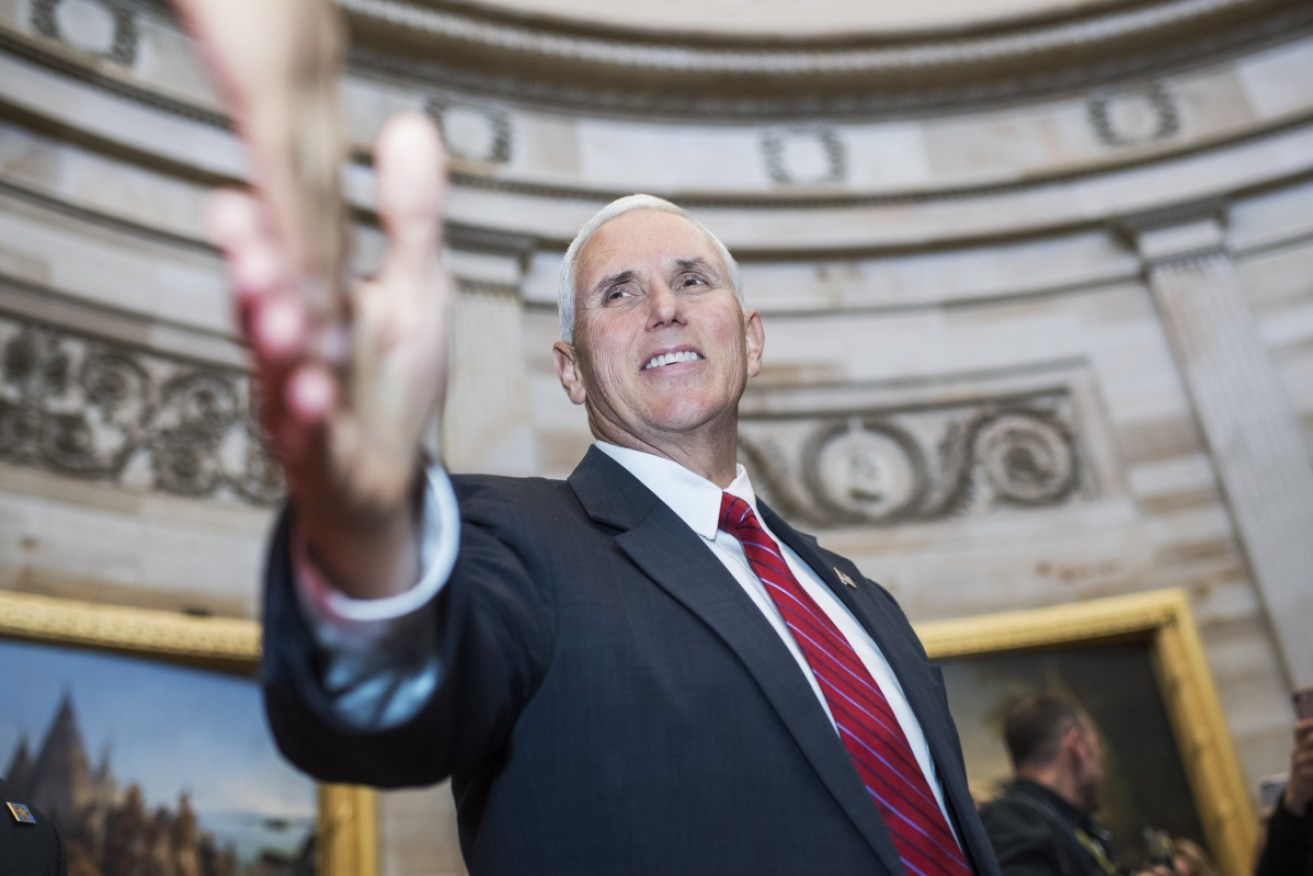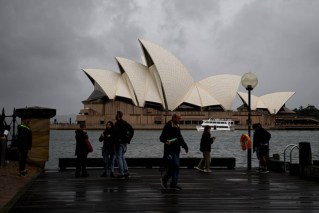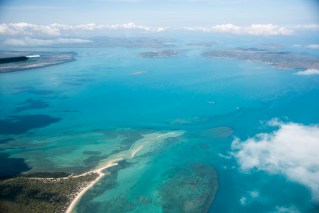Cold war in the Pacific: US and Chinese leaders in showdown for regional influence


Mike Pence has made a pitch to Pacific nations to stick with the US and not become beholden to China. Photo: Getty
US Vice-President Mike Pence and Chinese President Xi Jinping went toe-to-toe on Saturday in a tense exchange over which of the superpowers should be wielding the most influence on Australia’s doorstep.
Mr Pence urged leaders at the Asia-Pacific Economic Cooperation (APEC) meeting, in the Papua New Guinea capital of Port Moresby, to push against “empire and aggression” in Asia and the Pacific as concerns about China’s influence grow.
In a clear swipe at China, he added that the US vision for the region was one of “collaboration, not control”.
“The United States seeks an Indo-Pacific where every nation is free to follow its own path, pursue its own interests, where the seas and skies are open to all engaged in peaceful activity and where sovereign nations grow stronger together,” he said.
“Empire and aggression have no place in the Indo-Pacific; this is a region where every nation large and small must be permitted to prosper and thrive.”
The cocking of verbal six guns heightened the already awkward frisson attending the surprise announcement that the US will partner with Australia and Papua New Guinea to redevelop the Manus Island naval base.
The partnership comes amid rising anxiety about China’s power in the region. But this was on the eve of the APEC summit – and China was in the room. In fact, China president Xi Jinping spoke to the forum directly before Mr Pence.

The sprawling Manus base during its World War II heyday. Photo: US Navy archives
Putting on the cowboy hat
Mr Pence announced the US would join the naval development project in a speech to business leaders ahead of the summit in Port Moresby.
He said the US will work with Australia and PNG to protect Pacific maritime routes – a pointed reference to China’s increasingly proprietorial stance in the South China Sea.
“We will work with these nations to protect the sovereignty and maritime routes of Pacific Island nations,” he said on Saturday.
He made a direct plea to countries in the region to turn their back on China – which he characterised as taking a heavy-handed approach to development and diplomacy – and stick with the United States as the friendlier, softer option.
He bluntly criticised China’s debt-trap diplomacy that will potentially turn poorer Pacific nations into Chinese military staging posts.
“Do not accept debt that could compromise your sovereignty. Protect your interests,” he said. “Know that the United States offers a better option. We don’t drown our partners in a sea of debt, we don’t coerce or compromise your independence, we deal openly and fairly.
“The United States deals openly and fairly – and we don’t offer a constricting belt or a one-way road.”
Belt and Road takes a belting
This was an unambiguous swipe at Mr Xi’s Belt and Road Initiative, and growing concerns that struggling Pacific nations are being essentially subject to economic blackmail, haplessly trading strategic opportunity to China for loans they will eventually fail to repay.
That the region is now subject to a virtual bidding war by the two powers, Mr Pence, during his speech, pointed to other initiatives that demonstrated U.S. commitment to the region.
He announced the Indo-Pacific Transparency Initiative would be backed by $US400 million ($545 million) in US funding. He also talked up Exxon Mobil’s investment in Papua New Guinea and said he would make an announcement on Sunday about an “historic initiative that will transform Papua New Guinea’s future”.
Mr Xi rejected Mr Pence’s implicit characterisation of China’s role in the region.
“No-one has the power to stop people from seeking a better life. We should strengthen development cooperation,” he said.
And he warned against the escalation of trade and military tensions, saying a “hot, cold or trade [war]” could spell catastrophe.
“Mankind has once against reached a crossroad,” he said.
“Which direction should we choose? Cooperation or confrontation, openness or closing one’s door?”
Last month, Australia and Papua New Guinea announced both countries would upgrade the dilapidated Lombrum base in PNG, which has a strategically vital position overlooking key trade routes.
Australian navy setting up home in PNG
Defence Minister Christopher Pyne said this week Australian vessels would probably be based permanently at Lombrum under the deal.
The scale of the US commitment is not yet clear as Mr Pence did not say how much money the Trump administration would contribute to the project, or whether US vessels would be permanently based at Lombrum.
The announcement was certain to stir tensions with Beijing. Chinese and US vessels have come close to confrontation in the disputed South China Sea and Beijing has accused the Trump administration of trying to contain its rise in Asia.
The planned base redevelopment has also stirred some opposition on Manus, with some locals accusing the PNG Government of bulldozing the project through.
Meanwhile, back at the White House, while Mr Pence flew the flag for the US, his boss, Donald Trump, was canvassing aides as to whether Mr Pence is a loyal Vice-President or a threat.
It’s probably a bit early, but one can only imagine Mr Xi’s reaction if Mr Trump were to repeat history and dump a loyal member of his inner circle by Twitter. That would make for a very long flight home for Mr Pence.








